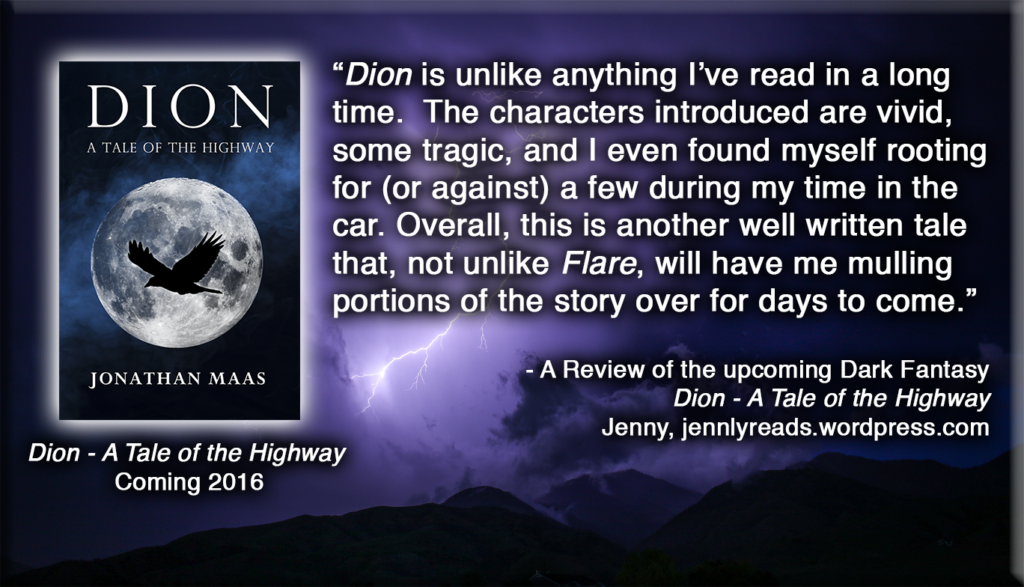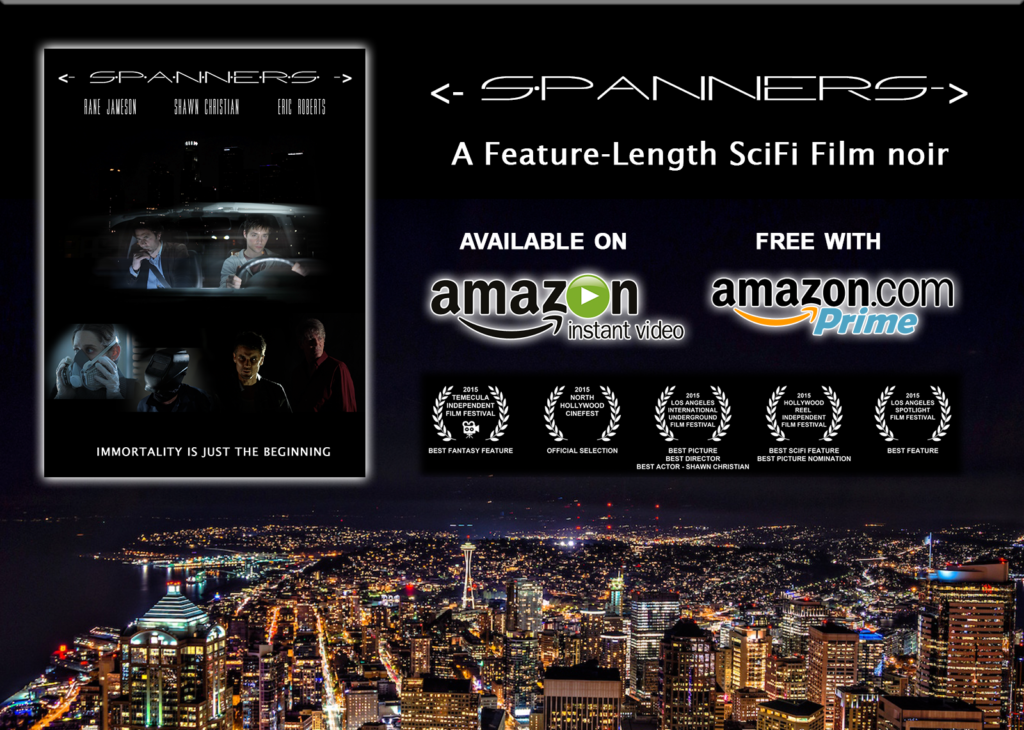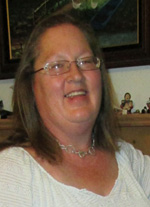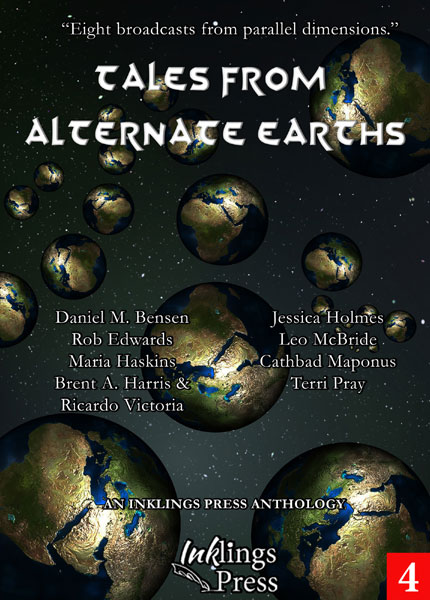 Today’s spotlight is different. I’ve had the pleasure of interviewing five out of nine authors from a wonderful anthology called Tales from Alternate Earths. What a great time I’ve had both reading the short stories and interacting with these talented people. Because there are so many stories and interviews, I will put the bio of each author with their short interview. You can find my review here.
Today’s spotlight is different. I’ve had the pleasure of interviewing five out of nine authors from a wonderful anthology called Tales from Alternate Earths. What a great time I’ve had both reading the short stories and interacting with these talented people. Because there are so many stories and interviews, I will put the bio of each author with their short interview. You can find my review here.
Our first author wrote Stargazing on Oxford Street. Meet Rob Edwards.
DQ: Your story felt so normal at first and I was curious to see where the alternate history part came in. What made you think of this particular “alternate” possibility?
RE: Alternate History was something of a challenge for me, I’m not a history buff like Brent or Cathbad, so I chose to write about something I do know, which is London. I lived there for twenty years, and the journey my characters take in the story is, after a fashion, my old commute to work. I lived near White City, where the 1908 Olympics were based, and the idea crystalized when I realized that the Tunguska meteor fell during the span of time those Olympics covered… although as far as I was able to find, no actual events were taking place on that date.
DQ: You’re from the UK, but living in Finland. Where else in the world would you like to live?
RE: Hmm. Tough one.
I moved here earlier this year, my wife is Finnish and she is the reason I’m here. It’s a great place, the lakes are beautiful, and the pace of life is much quieter than London, an ideal writing environment in fact. There is, perhaps, an alternate history where I live in Amsterdam, in the Netherlands. I lived and worked there for a while in my youth, and back then it had a great atmosphere, but I’ve not been back in years.
Oh, I know! The moon. I’d like to live on the moon, in some sort of permanent lunar settlement. Can we get on that?
DQ: What is your favorite genre to read? To write?
I wrote an article on the Altered Instinct blog about the books that stayed with me* and they are mostly science fiction and fantasy (although my love of comic books is also represented). I love a good adventure in a setting which is a little bit off-beat, and that’s what I read and what I write.
Note* I did check out the article on Altered Instinct and Rob has a great list of favorite books.
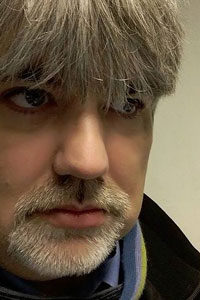
Rob Edwards is a British born writer and podcaster, currently living in Finland. His podcast, StorycastRob, features readings from his short stories and excerpts from longer work. His work can also be found in the anthologies Tales from the Universe and Tales from Alternate Earths, published in Kindle format by Inklings Press, and as guest spots on episodes of R B Wood’s Word Count Podcast.
His greatest geek pride is his entry on wookieepedia, the a result of writing several Star Wars RPG scenarios back in the day.
Rob is currently working on a YA novel featuring superheroes in space and an urban fantasy novel set in and under 90s London.
Follow Rob on Twitter and his blog.
Tunguska had much of the dark feel of Stargazing on Oxford Street. It was gritty and I expected any moment to see devastation. Then it surprised me. I love when I think I have a story figured out and it twists at the end in a way that fits my preconceptions yet adds more. Maria Haskins gave me chills with the story that closed this anthology.
DQ: I have to say your story was the perfect close to this anthology. What made you think of this type of alternate history story? Where did you get the inspiration for it?
MH: Thank you so much! I’ve never really written alternate history before, so when I saw that Inklings Press had a call out for submissions for an anthology, I initially didn’t think I would participate. But I guess my brain had other ideas, because two scenes kept sort of tapping me on the shoulder. One was the opening for the 1987 storyline, with a girl looking out her window and seeing a spaceship land just beyond the birch trees. And the other was the opening “chase scene” for the 1929 storyline, with a man running through the snow, being pursued and shot at by some kind of drone. I tried ignoring those scenes for a while, but finally decided to see where they’d take me if I tried to put them together in a story. My working title was “The Best of All Possible Hells”, imagining an alternate timeline that’s sort of a Utopia because there’s peace and humanity has avoided all the wars since 1908, and where there’s also some kind of environmentally sound progress. And yet the people in that world do not necessarily feel particularly happy, because, well… Utopias are complicated.
Right from the get-go I had a strong idea about what the two people in the two timelines were like, and once I figured out the connection between them, the whole storyline sort of popped into my head.
Around the same time, I’d also gone through some old photos of mine that included a photo of the dog my dad had when he was a kid. That dog’s name was Ajax, and that’s how a dog named Ajax ended up as part of my story. I knew from the start that the story would be set in northern Sweden. That’s where I grew up, and the 1929 storyline is partly inspired by the real lives of my grandparents – my grandfather’s squirrel hunting, particularly.
DQ: This story had so many elements that reminded me of others I have read, yet you kept it uniquely your own. What is your favorite genre to read? To write?
MH: Thank you again! That’s high praise and much appreciated! I was trying to take familiar themes and tropes and sort of put some sort of unique spin on them: hopefully I succeeded to some extent. My favorite genre to read is any kind of speculative fiction: different shades of science fiction and fantasy, a lot of dark fantasy, some horror as well. Those are the genres I’ve loved reading since I was a kid. Speculative fiction is also what I love to write right now: over the last year I’ve mainly worked on short stories that are either fantasy-ish or science fiction-ish. I also write poetry, and that crops up occasionally for me no matter what else I’m writing.
DQ: Can we look forward to other, perhaps longer, works in this genre from you, or do you have other plans?
I definitely got a taste for alternate history storytelling while writing this story, and also while reading the other stories in the anthology. I have no alt-history projects brewing right now (too many fantasy and science fiction tales on the go!), but I think I will probably dive into the genre again in the future. There are so many cool “what ifs” to imagine.
Thank you Maria. I do hope you will write more in this genre, but from the quality of this story, I’m sure all your work is worth the read.
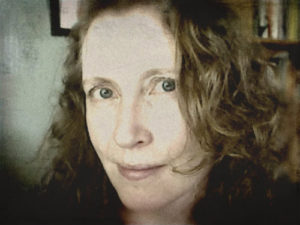 Maria Haskins is a Swedish-Canadian writer and certified translator. She writes speculative fiction and poetry, and debuted as a writer in Sweden in the far-off era known as the 1980s. Since 1992 she lives in Canada, just outside Vancouver, with a husband, two kids, and a very large black dog.
Maria Haskins is a Swedish-Canadian writer and certified translator. She writes speculative fiction and poetry, and debuted as a writer in Sweden in the far-off era known as the 1980s. Since 1992 she lives in Canada, just outside Vancouver, with a husband, two kids, and a very large black dog.
Follow Maria on Twitter and Facebook. You can also learn more about Maria and her work on her website.
The Secret War was a great read and Leo McBride kept me guessing until the end. I should have caught the clue in the protagonist’s nickname, but I didn’t. Other clues told me what was going on in this wonderful twist on a well known tale.
DQ: Of all the stories this one was the most fun for me, more for its sheer audacity than anything else. It takes some cheek to take on one of the best known Science Fiction writers in the world. You did it well and made the story your own. What inspired you to create this story?
LM: Thanks! And very much felt under pressure considering who I was paying tribute to! I’ve always been a huge fan of HG Wells, and The War of the Worlds particularly, not just the book but the fabulous Jeff Wayne version on record which I used to play over and over on vinyl. I think it was one of the first stories that stuck in my head in which humans face such an overpowering, overwhelming force, but at the same time, I always wondered what next for the world? The Martians are wiped out by bacteria, but what next for humanity? I also figured a lot of contributors would be writing about the world taking a twist and turning out differently, so I thought perhaps it might be fun to have something take place in our world that we didn’t know about, that shaped our world in the way it turned out, but all remaining hush, hush.
DQ: You obviously have read at least one classic Science Fiction book. What is your favorite genre to read? To write?
LM: Gosh, that’s a tough one. I’ve always loved science fiction, but also fantasy and horror. I think any genre that makes the imagination take flight is one that I’ve enjoyed reading, so I grew up reading the likes of Le Guin, Clarke, Tolkein, Donaldson, but the writer whose work I most fell in love with was Ray Bradbury and the way he could transport that picket fence world of small town America into futures far and distant. He has a magical way with words that makes the incredible seem like you could reach out and touch it, and creating worlds that feel lived in, and the people seem like Jimmy from the bar, or Annie from down at the library, folks you could have as your neighbours, no matter what planet you’re on. In terms of writing, I think I’m still finding my way. I seem to have taken to writing science fiction tales more easily so far, and enjoy exploring the possibilities in those stories. That said, the two novels I’m working on are very different from that – one a supernatural horror and the other a paranormal comedy. That latter is the main one I’m working on most at the moment, and sprang from just a silly idea that seemed far too good to ignore!
DQ: I’ve now read this short story and another on your blog. I enjoyed both. Do you have plans for more anthology work, or perhaps a longer alternate history book?
LM: You’re very kind! And I’ve got a couple of plans. There’s a story of mine due to feature in a collection by Starklight Press, and I’m sure Inklings Press will have another call out this year for the next anthology there. I’m also planning a series for the blog involving other authors in a shared-world series of weird Wild West tales. That latter one is mostly for a bit of fun writing and to try to encourage some of the other authors from the Inklings group who might want to take part without the pressure of a deadline. My main focus for the rest of the year though is to try to make progress on the novel. I’m being outpaced by some friends who have completed their novel projects, so I need to catch up!
Thank you Leo McBride for your answers. I look forward to reading more from you.
 Leo McBride has worked in journalism for more than 20 years and lives in The Bahamas. He self-published a collection of short stories with a fantasy twist, Quartet, and has featured in four anthologies published by Inklings Press in the science fiction, horror, fantasy and alternative history genres. He has also had a story accepted by Starklight Press in their Blue Moon Season anthology. He blogs at his website, Altered Instinct, where guest authors are also welcomed to publish short fiction, and where he features his book and podcast reviews. Leo is working on a paranormal comedy novel, set in the world of US politics.
Leo McBride has worked in journalism for more than 20 years and lives in The Bahamas. He self-published a collection of short stories with a fantasy twist, Quartet, and has featured in four anthologies published by Inklings Press in the science fiction, horror, fantasy and alternative history genres. He has also had a story accepted by Starklight Press in their Blue Moon Season anthology. He blogs at his website, Altered Instinct, where guest authors are also welcomed to publish short fiction, and where he features his book and podcast reviews. Leo is working on a paranormal comedy novel, set in the world of US politics.
Follow Leo McBride on Facebook and Twitter. You can learn more about Leo at his website.
Twilight of the Mesozoic Moon is a joint venture by Brent A. Harris and Ricardo Victoria.
DQ: Twilight of the Mesozoic Moon was a serious subject, yet you seem to have injected some fun into it with the troodons and some of Gon’rak’s attitude. What made you come up with the idea of “alternating” history from that far back?
RV: Because I have never read a story like that and Brent is a fan of dinosaurs. The story actually started different. The first idea was a homage to the Apollo 11 mission but in a world where the asteroid that hit Yucatan was deflected by the Moon (hence the Scar in the Moon) and dinosaurs (of the raptor kind) evolved into sapient, sentient beings with a civilization paralleling ours but millions of year before and with some differences, such as the mission being a joint effort between different ‘nations’ as an Ice Age is approaching and the whole species is looking for ways to survive it, including going to space. Then Brent, who had his own ideas by the time I pitched the idea, took it to the possibility of the species evolving to the point where they could time travel to stave off a cataclysm and end changing the timeline. It was a mix between two parallel stories coming about and deciding to merge them to make them work with their respective best bits.
BH: Two reasons: dinosaurs are fun. And I wanted to break the mold that alternate history is limited. There is so much out there to explore, ponder, all sorts of ways: environmental, geographic, bacterial, I mean even how the Earth tilts, that could have profoundly changed Earth’s history.
DQ: You work well together. Was it difficult to keep the story to short status with both of you working on it?
BH: Thank you. Ricardo can write short stories. I cannot. It did require a bit of policing and self-control to make sure it didn’t become an unabridged history of the world. There’s always a danger in not knowing if you haven’t given enough of a story or you’ve given too much. It was a fine line and I hope we found a balance people will like.
RV: Brent and I have very different approaches to writing, so yes, it was tricky to keep the story under a limit. Luckily Brent is evolving (lots of evolution going around here folks) into a good editor on its own and thus he is aware of where the story needs to be trimmed. Brent writes in a more linear fashion, from start to end, while I’m more of writing individual scenes and putting all together. Getting the story done required a fair share of back and forth emails, but nothing too difficult.
DQ: Can you give me an idea of why this particular story worked for you?
RV: Because it is different and crazy. I like different and crazy. And in my case the theme of a species trying to save itself from an impending doom hits a personal fiber since it relates with my field of work (my actual day job, not the moonlighting as writer), see I have a PhD in Sustainable Design and most of my work is either researching or teaching the topic. And the question about what we could do as species to stave off climate change and all the different scenarios that are in front of us is one that keeps popping up in my head all the time and in my lectures. So having the idea of a doomed species trying to survive through science appeals to me, even if the consequences as you saw in the story are… well, not as expected. Finally, the ending that Brent proposed reminded me of a classic science fiction story from the golden age. You can’t go wrong with those!
BH: I was inspired by Ricardo’s short story about a sapient civilization of dinosaurs coming together to work on landing on the moon, as sort of an homage to our own historic moon landing. Not to be cynical, but it does seem we’ve lost sight of setting and attaining goals as a civilization, of working together. Mesozoic Moon works for me because it’s a reminder on a couple levels: first, our civilization isn’t guaranteed—it can be wiped out at any second, as it has for other species several times in the past. Secondly, our knowledge of even our own history is incredibly thin. We know almost nothing. We only have an inkling of an idea of the sacrifices, tragedies, and triumphs that have come before us to get us where we are right now. Hopefully, the story is a reminder of not just the fragility of our species, but also the strength. Plus, dinosaurs.
DQ: I would like to read more by the two of you as a team. Do you have any plans to collaborate again?
BH: Not at this time. We both have our own projects going on. I have an alternate history novel about the American War for Independence that I am shopping around to agents and publishers (hopefully I’ll close on a contract soon!) while I’m steadily working on the next book in the series. And I know Ricardo has his hands full with his own projects. However, I think that if enough people like our story and it gets a good response (fingers crossed) I’d would definitely work with Ricardo again.
RV: Right now as writers in specific, we don’t have something as such planned, although talks of a shared ‘universe’ a la Wildcards from G.R.R. Martin have taken place between Leo McBride, Brent and myself. For the time being both of them are helping me with editing my first novel and a short story anthology that derives from it. Depending on the next anthology’s theme and the reception of this story we might see.
DQ: There were quite a few social issues in this story. Women’s rights, religion having a strong influence on government, the state controlling scientific advancement all were touched on. Were you intending to make commentary on these issues or did the story just unfold that way?
BH: The idea of alternate history is to create a world that—no matter how different—is also just similar enough that there’s this kinda creepy reflection of our own world, which hopefully provides the reader a new perspective. Again, it’s another one of those fine lines—you don’t want to beat your audience’s head in with social commentary. Yes, I want everything I write to mean something, sure. But if it isn’t fun, no one is going to read it anyway
With that in mind, there was a lot of work that went into the creation of Gon’rak’s world. We wanted to make it fully fleshed out so we had to ask how this society might function. From cosmogony, we know that early civilizations typically deified whatever it was which could make or break them. Usually, it was water, often-times, volcanos, corn and crops. Things of that nature.
In Gon’rak’s case, he has this very precarious lunar object just kind of hanging out in the sky, looking like it’s just going to fall at any time. We knew that would have a profound role in his civilization. From that, we were able to sort of grow Gon’rak’s world somewhat organically, taking cues and filling gaps in from our own society as part of that reflection alternate history does so well.
RV: It unfolded organically. I mean, Brent and I tend to have politically charged but always amicable discussions from time to time, since he is a student of history and sociology and me because of the postgrad studies I did. Thus we talk about those topics because they are derived from our respective fields of study and/or work. The original pitch for the story was more like a blockbuster idea of a cracking team of dinosaurs trying to save their world with a few hints of social and political issues that affected the way the characters went about the mission. But as with the collaboration that grew organically, those topics found a way from our day jobs into the story. And I’m glad for it because as writers we have a certain duty to explore such topics and how society is molded from them. Doing it without coming off as preachers is a tricky thing, but I believe we accomplished that with the story. Again, I give credit to Brent’s skills as editor too, as he kept us in check.
DQ: Given the chance, when and where would you travel in a time machine? Do you believe in the Butterfly Effect?
RV: For the first part? I would like to witness the Roman period in Britain or the birth of the first civilizations. Maybe a detour to the Renaissance or Mexico’s War of Independence. Those time periods are the ones that spark most of my imagination and would be good places to visit as writer. On the second part of the question. I’m going to be honest here: I hate time travel stories, with the exception of Back to the Future and our story of course. I not only believe in the Butterfly Effect, which is scary unto itself, but I kinda subscribe to the theory of Many-Worlds from Quantum Physics and as such thinking on the consequences of time travel gives me a headache. You not only would end with a different future on your path, but might not even be able to go back to your original timeline because you could end in a different universe. As with any chaotic system, a small change in time can create massive consequences.
BH: I’d be too overcautious to travel back in time, because I do believe in the butterfly effect—though I’d really want to see the dinosaurs. Safest bet is to travel to the future, just to see if we make it to the stars like I am really hoping we do. Then, I’d come back and write about it as a science fiction television show, featuring a diverse cast, social themes, and Vulcans.
Wait…
This has been a fascinating discussion and every bit as enjoyable as your story. Thank you Brent and Ricardo for your thoughtful replies.
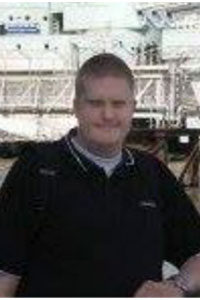 Brent A. Harris is a part-time history and sociology student, part-time writer, and full-time stay-at-home-dad. He has lived in the U.K. in Lincolnshire and has traveled to Greece, Spain, and many parts of the U.S. He currently resides in Southern California where he is finishing his history degree in between bouts of writing and continuous diaper-changing. He has several works of short fiction published in anthologies through Inklings Press.
Brent A. Harris is a part-time history and sociology student, part-time writer, and full-time stay-at-home-dad. He has lived in the U.K. in Lincolnshire and has traveled to Greece, Spain, and many parts of the U.S. He currently resides in Southern California where he is finishing his history degree in between bouts of writing and continuous diaper-changing. He has several works of short fiction published in anthologies through Inklings Press.
You can follow Brent on Facebook and Twitter.
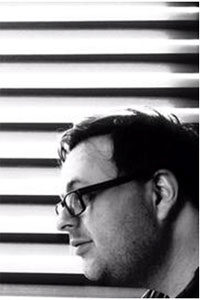 Ricardo Victoria is a full time lecturer-researcher at his local university, part-time writer and game designer, and full time absent minded toy collector. Holds a PhD in Sustainable Design. He lived in the U.K during his postgrad and has travelled across northern Europe. He currently lives in his natal hometown in Mexico with his wife and dog. He is currently working in editing his first full length science fantasy novel ‘Tempest Blades’, a short story companion anthology titled Ravenhall and an illustrated book with a friend as well as designing his first board game. He has published short stories in anthologies through Inklings Press.
Ricardo Victoria is a full time lecturer-researcher at his local university, part-time writer and game designer, and full time absent minded toy collector. Holds a PhD in Sustainable Design. He lived in the U.K during his postgrad and has travelled across northern Europe. He currently lives in his natal hometown in Mexico with his wife and dog. He is currently working in editing his first full length science fantasy novel ‘Tempest Blades’, a short story companion anthology titled Ravenhall and an illustrated book with a friend as well as designing his first board game. He has published short stories in anthologies through Inklings Press.
Follow Ricardo Victoria on Facebook and Twitter.

